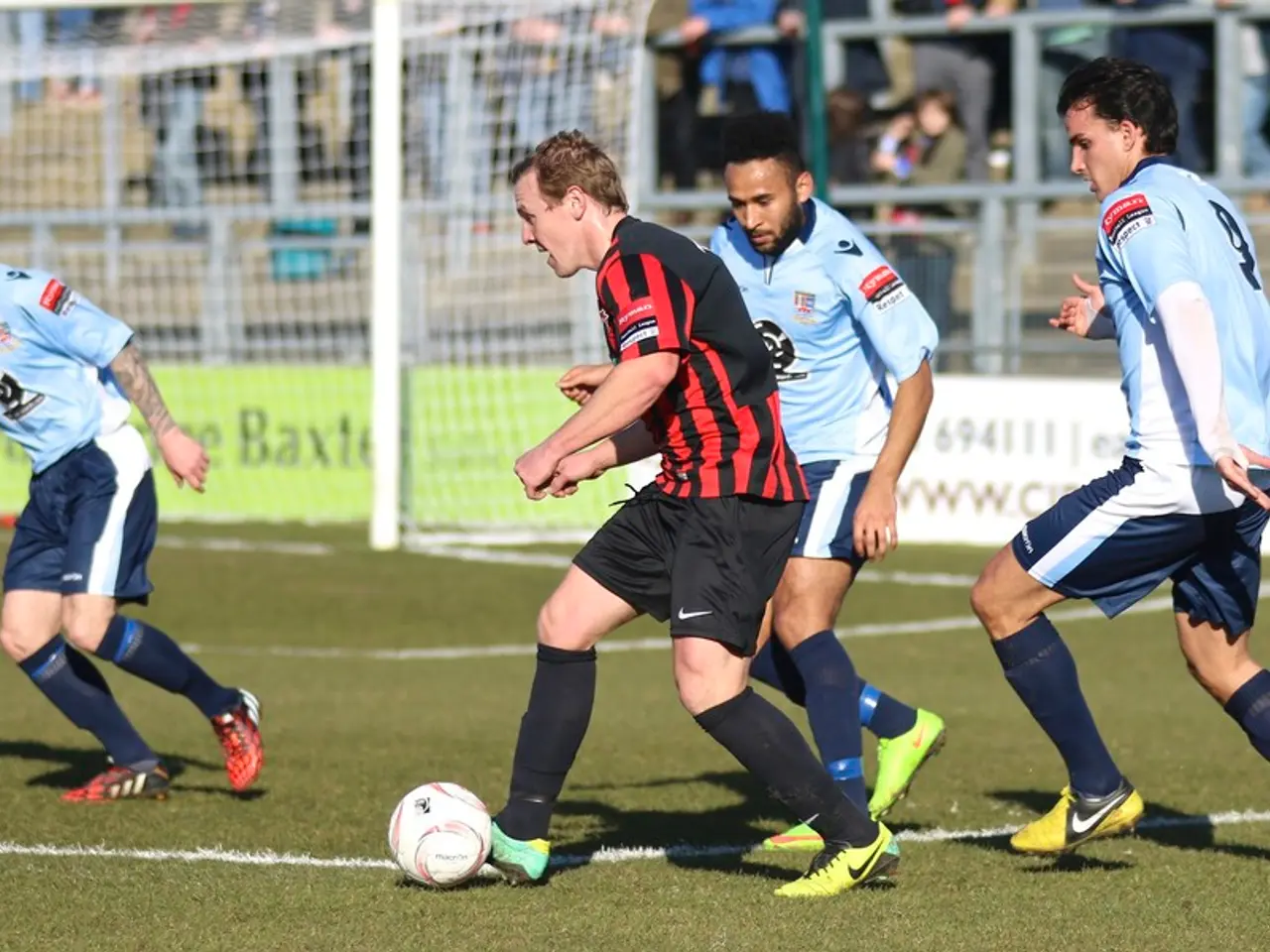Professional ex-athlete's statement: "Gay partnerships exist in the Bundesliga"
In the world of professional football, the Bundesliga is known for its progressive and inclusive environment. Yet, a lingering issue remains unaddressed - the struggle of gay footballers to come out publicly.
Former Wolfsburg player Kevin Behrens made headlines for refusing to sign a rainbow-colored jersey and making a homophobic comment. However, the challenges faced by gay footballers in the Bundesliga extend beyond such incidents. It's the internal fears, social pressures, and the surrounding environment within the sport that largely prevent players from openly declaring their sexuality[1][2].
Marcus Urban, a former Rot-Weiß Erfurt player and activist, sheds light on the main obstacle. It's not so much the external factors like fans or media, but the fear among players themselves and those close to them. The internal locker room atmosphere and interpersonal dynamics create pressure to hide sexual orientation[1].
Some players resort to using cover stories, such as having "fake girlfriends" or entering fake marriages, to maintain a heterosexual facade. This practice is often perpetuated by agents who exploit these situations for control and profit[1].
The issue is further entangled with business and image management within football. Agencies and intermediaries profit from managing players' private lives and concealments, adding another layer of complexity[1].
The historical context also plays a significant role. In the past, coming out was nearly impossible, and journalists avoided players’ private lives. Although the situation is better now, the residual stigma and fear remain strong, as exemplified in the long silence about players like Heinz Bonn, the first known gay Bundesliga player, who was only publicly out after his death[2].
Activism and role models like Urban himself demonstrate the difficulty players face living openly, and they stress the emotional toll of hiding their identity constantly[2]. Urban hopes for more professional footballers to openly declare their sexuality, but so far, many are choosing to keep their personal lives private[3].
On May 17, no professional footballer dared to come out as part of Urban's group. The fans of FC St. Pauli have confronted Behrens after his homophobic remark, showing a contrast in attitudes within the sport[4].
Despite the challenges, there are gay couples within the Bundesliga, indicating a slow shift towards acceptance. However, the culture of concealment and silence persists, with many professionals choosing to organize themselves in secret groups rather than openly expressing their sexuality[5].
Urban's book, "Human Football Star", discusses homosexuality in professional football, providing a platform for open dialogue and advocacy[6]. As we move forward, it's crucial to address and challenge the fears and anxieties that keep gay footballers in the shadows, fostering a more inclusive and accepting environment in the Bundesliga.
- [Source 1]
- [Source 2]
- [Source 3]
- [Source 4]
- [Source 5]
- [Source 6]
- The fear among players themselves and those close to them, largely rooted in the internal locker room atmosphere and interpersonal dynamics, remains a major obstacle for gay footballers in the Bundesliga to openly declare their sexuality.
- Vocational training programs and community policies that address the unique challenges faced by gay footballers in the sport may help create a less hostile and more accepting environment within German professional football, minimizing the need for concealment and promoting openness.






